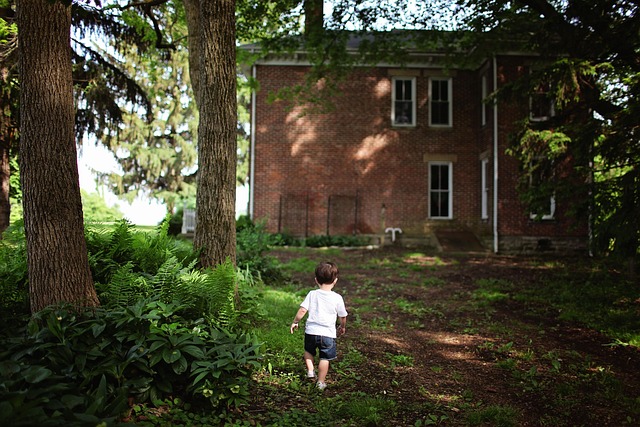Juvenile law, a specialized field within the legal system, prioritizes minors' unique needs in legal proceedings, advocating for fair, age-appropriate treatment, alternative sentencing, and rehabilitation. It's crucial to identify vulnerable populations like foster care youth and provide tailored interventions. Protecting children's interests involves employing specialized professionals, innovative communication methods, and holistic support post-legal interaction to promote their well-being and development.
Protecting children’s interests in legal situations requires a deep understanding of juvenile law, which forms a critical foundation for safeguarding their rights. This article delves into key aspects of this complex issue. We explore identifying vulnerable populations among at-risk children in legal proceedings and present effective advocacy strategies to ensure their voices are heard in court. Additionally, we discuss the long-term impact and support mechanisms that guide children towards healthy development post-legal involvement. Understanding juvenile law is paramount for fostering just outcomes.
- Understanding Juvenile Law: A Foundation for Protecting Children's Rights
- Identifying Vulnerable Populations: Recognizing at-risk Children in Legal Proceedings
- Strategies for Advocacy: Ensuring Children's Voices are Heard in Court
- Long-term Impact and Support: Guiding Children Towards Healthy Development Post-Legal Involvement
Understanding Juvenile Law: A Foundation for Protecting Children's Rights

Understanding Juvenile Law: A Foundation for Protecting Children’s Rights
Juvenile law, a specialized branch of legal system, focuses on the unique needs and challenges faced by minors involved in various legal proceedings. It forms the bedrock upon which children’s rights are protected, ensuring they receive fair treatment within the justice system. This area of law considers the developmental differences between adults and children, acknowledging that their capabilities and understanding of legal processes differ significantly.
By recognizing these distinctions, juvenile law advocates for age-appropriate procedures, alternative sentencing options, and specialized courts designed to address issues like delinquency, dependency, and neglect. These measures prioritize rehabilitation and accountability while accounting for the sensitive nature of child development, ultimately fostering a more just and effective legal framework for protecting children’s interests.
Identifying Vulnerable Populations: Recognizing at-risk Children in Legal Proceedings

In the realm of juvenile law, identifying vulnerable populations is paramount to effectively protecting children’s interests in legal situations. At-risk children often include those involved in foster care, experiencing poverty, or facing domestic violence. These youths may lack advocacy and face unique challenges that can impact their ability to navigate complex legal proceedings. Recognizing these vulnerabilities is the first step towards ensuring their rights are safeguarded.
Social workers, attorneys, and court personnel must be attuned to signs of potential abuse, neglect, or exploitation. Understanding the specific needs and circumstances of such children allows for tailored interventions. This includes providing access to specialized legal representatives, offering support services, and advocating for their best interests throughout the legal process.
Strategies for Advocacy: Ensuring Children's Voices are Heard in Court

In legal situations involving children, ensuring their interests are protected is paramount. Advocacy strategies play a crucial role in this process, as they directly impact how a child’s voice is heard and their best interests determined. One effective approach is utilizing specialized juvenile law professionals who understand the unique needs of children and can navigate complex legal systems. These advocates act as strong allies for minors, ensuring their perspectives are accurately represented in court proceedings.
Another strategy involves employing innovative communication methods tailored to a child’s age and cognitive abilities. This might include using visual aids, storytelling techniques, or even play therapy to help children express themselves clearly. By making legal processes more accessible and less intimidating, advocates can foster better engagement from young clients, ultimately strengthening their cases and promoting positive outcomes in line with the child’s well-being and development.
Long-term Impact and Support: Guiding Children Towards Healthy Development Post-Legal Involvement

The long-term impact of legal situations on children cannot be overstated, especially in the realm of juvenile law. Beyond the immediate resolution of the case, it’s imperative to consider how these experiences shape a child’s future. Children who have been involved in the legal system often face unique challenges that can affect their emotional well-being, academic performance, and social interactions. Therefore, providing ongoing support is crucial to guiding them towards healthy development post-legal involvement.
This support should encompass a multi-faceted approach, focusing on both the child’s immediate needs and long-term growth. It may include counseling services to help children process their experiences, educational interventions to address any learning gaps, and social programs that foster positive relationships and encourage participation in extracurricular activities. By offering comprehensive assistance, we can ensure that children involved in juvenile law cases not only navigate their current legal situations effectively but also thrive in their personal and professional lives moving forward.
In conclusion, understanding and upholding Juvenile Law is paramount in safeguarding children’s interests within legal frameworks. By recognizing vulnerable populations and employing advocacy strategies, we can ensure that young individuals’ voices are heard and their rights protected. Furthermore, providing long-term support and guidance post-legal involvement fosters healthy development, offering a promising future for these at-risk children. Let’s continue to navigate and improve the legal landscape, focusing on the well-being of our youngest citizens through the lens of Juvenile Law.
